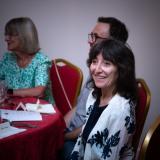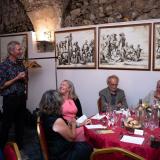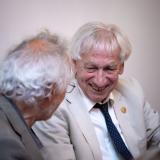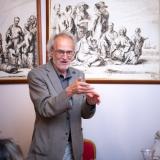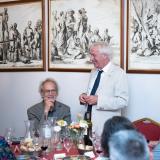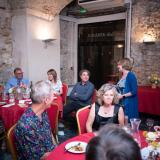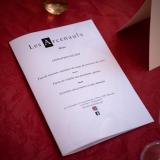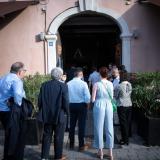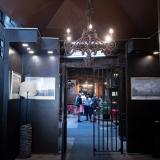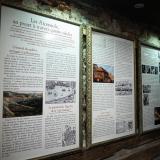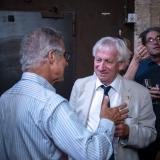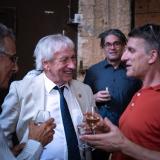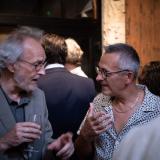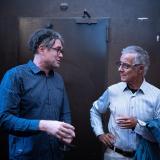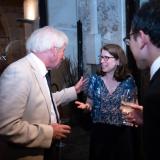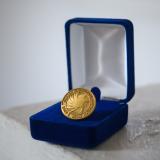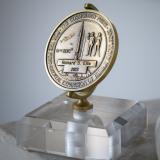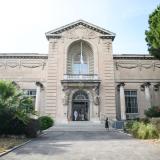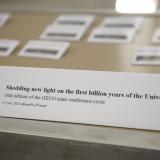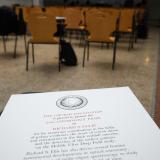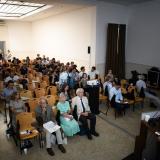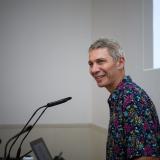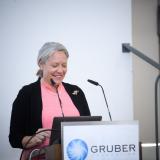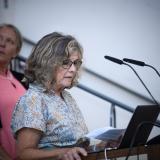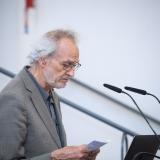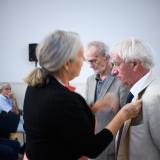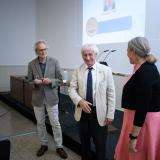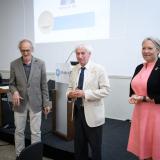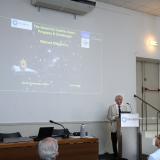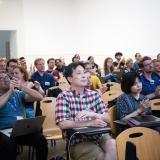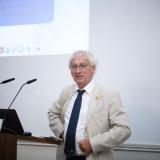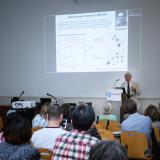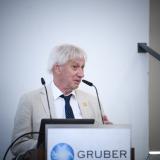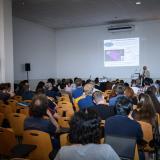2023 Gruber Cosmology Prize
Over the past five decades Richard Ellis’s innovations have reimagined cosmology in fundamental ways. His observations have pushed the cosmic horizon—how far across the universe we can see—to a period close to the development of the first galaxies. Meanwhile the instruments he conceived, then shepherded through development and execution, have transformed myriad astronomical methodologies.
2023 Cosmology Prize Recipient
Laureate Profile
For nearly fifty years Richard Ellis has been a benignly iconoclastic presence in cosmology, introducing innovations in observation and technology that, decade after decade, have proven to be revolutionary.
“The path through my career,” Ellis says, “has been a combination of instrument development and pushing the frontiers.”
One such frontier was the evolution of galaxies. Because the speed of light is finite, astronomers can trace the evolution of galactic structures in reverse, starting with the nearest and most mature and extending to the earliest and most primitive. Ellis’s observations repeatedly pushed that frontier until he and his collaborators finally neared the period that cosmologists now call “the cosmic dawn”—the era when stars and galaxies were first forming out of gravitationally collapsing clouds of neutral hydrogen.
“When I began, I was unaware of the term `cosmic dawn;” Ellis says. “It was pure exploration. I was simply intrigued to find what was out there.”This pursuit repeatedly inspired Ellis to either adopt or invent new approaches in astronomical investigation. In order to observe the light from distant galaxies, for instance, he was one of the first astronomers to use massive galaxy clusters as “gravitational lenses” that magnify the otherwise impossibly distant light “behind” them. And in order to measure the properties of those distant galaxies, Ellis devised several forms of spectrographs that allowed him to study gas compositions in distant star-forming galaxies.
Over the course of his career Ellis has relocated several times in order to accept prestigious academic, research, or administrative positions, including stints as senior scientist at the European Southern Observatory and as the director of the Palomar Observatory (now Caltech Optical Observatories) and the Institute of Astronomy at Cambridge University. He says he rather likes this habit of finding fresh opportunities in disparate locations: “It presses a reset button. In some sense it gives you a new start.”
His most recent relocation has also given him an old start. In 2017 Ellis returned to University College London, where he had received his undergraduate degree 46 years earlier. “I walk down the corridors and they’re exactly the same as in 1968,” he says. “They haven’t managed to change the wooden doors.”
What has changed instead, in the half-century-plus since Richard Ellis walked down one of those corridors on the way to his first undergraduate class in astronomy, is the universe—or at least, thanks in large part to his own ingenuity as an observer and an instrumentalist, our understanding of how it evolved from primitive gas to hundreds of billions of galaxies.
Watch Video
Citation
The Gruber Foundation is pleased to present the 2023 Cosmology Prize to Richard S. Ellis for his numerous contributions in the fields of galaxy evolution, the onset of cosmic dawn and reionization in the high redshift universe, and the detection of the earliest galaxies via the Hubble Ultra Deep Field study.
Richard S. Ellis has also driven several frontier instrumental developments in optical astronomy, especially the use of multi-object spectroscopy to study many galaxies in the same field of view. These included the "autofib" instrument, the "2dF" facility on the Anglo-Australian Telescope, which led to the discovery of baryon acoustic oscillations, the "LDSS" on the Herschel Telescope, which studied the redshifts of faint galaxies, and the "PFS" currently under commissioning on the Subaru Telescope to study dark matter and dark energy.



